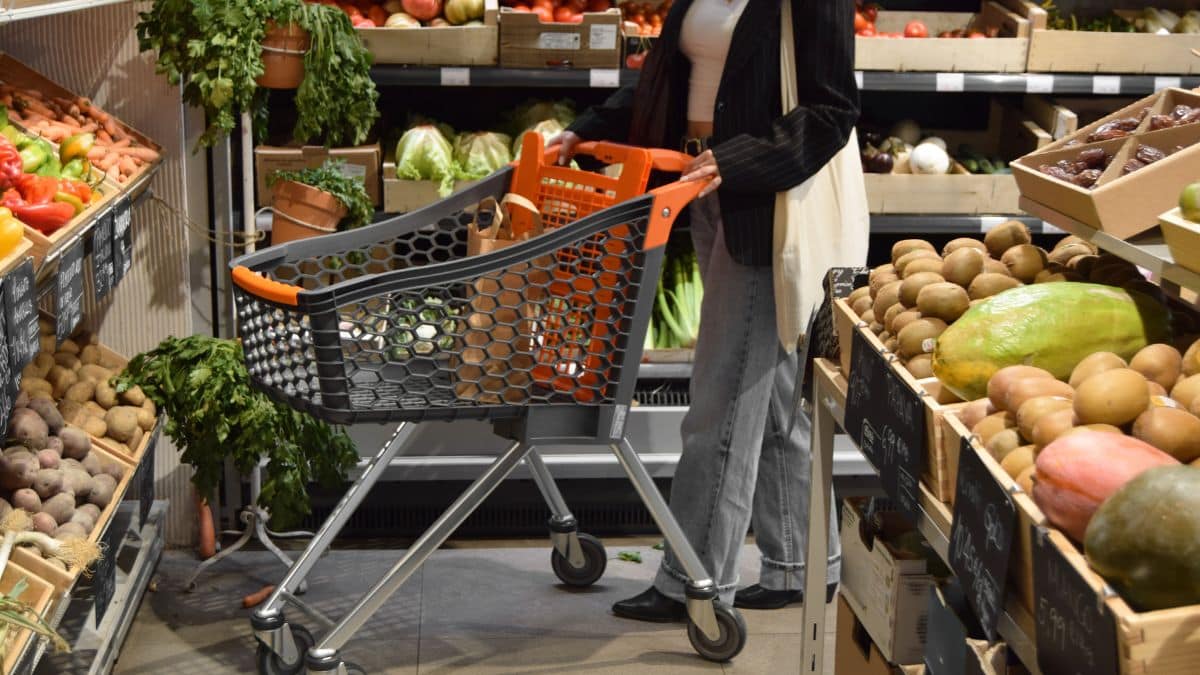Food prices are continuing to climb, making the weekly shop one of the biggest pressures on family budgets. While energy bills have dipped slightly, a report in The Times shows that households notice food inflation more than anything else, and it is what feels hardest to control.

For many families, this is not just about numbers on a chart. It is about standing at the checkout and seeing the total climb higher, even when you have not put much in your trolley.
What rising food prices mean in real terms
Even small percentage increases add up quickly.
Get a free £10 bonus with Swagbucks
Earn a bit of extra money in your spare time with surveys, videos, and simple tasks you can do at home.
New users can get a £10 bonus when they sign up.
Get the £10 bonus
- A 5% increase on a £60 shop is £3 extra.
- Over a year, that is more than £150 added to your grocery bill.
- For families with teenagers or larger households, the extra costs are much higher.
Unlike energy or fuel bills, which you can sometimes reduce with long-term changes, food is something you have to buy every week.
10 practical ways to save on your supermarket shop
Here are tried-and-tested ways to cut back without feeling deprived:
- Switch to own brands – Start with cupboard staples like pasta, tinned tomatoes and cereal. Many are made in the same factories as big names.
- Hunt out discount boxes – Aldi’s “Super 6” and Lidl’s £1.50 “Waste Not” boxes are brilliant for fruit and veg at a lower price.
- Shop later in the day – Yellow sticker bargains are often best after 7 pm, especially in large stores.
- Meal plan around deals – Instead of planning meals, then shopping, look at offers first and build meals from there.
- Stretch meat further – Pad out dishes with beans, lentils or extra veg. A pack of mince can go from 2 meals to 4.
- Batch cook freezer meals – Make double portions of curries, soups or pasta bakes. This saves time, energy and money.
- Do not overlook frozen – Frozen veg and fruit are just as healthy, last longer, and cost less.
- Check loyalty schemes – Tesco Clubcard, Nectar Prices, Asda Rewards and Lidl Plus all give discounts or cashback.
- Swap supermarkets – Aldi and Lidl are often cheapest, but do not ignore Iceland for frozen deals or bulk buys.
- Avoid convenience top-ups – Small “just popping in” shops often add £10–£20 a week without you realising.
The bigger picture
Food inflation feels worse than energy or fuel because it is part of daily life. Prices rarely come back down, so even when inflation slows, we are left paying more than before. That means the best defence is changing how we shop, cook and plan.
Bottom line
Food inflation is not going away quickly, but there are practical steps every household can take. Switching brands, hunting for yellow stickers and being smarter with meal planning can make a real difference. Even shaving £10 a week off your food shop adds up to more than £500 a year saved, and that is money back in your pocket where it belongs.
Saved a few quid with our tips?
If Skint Dad has helped you spend less or feel more in control of your money, you can support the site with a small contribution.
- Side hustles and benefits in the UK: what you need to know - 8 January 2026
- Lloyds Bank switch deal: grab £250 plus Disney Plus for free - 6 January 2026
- Thinking of doing the Co-op freezer deal? Read this first - 6 January 2026
